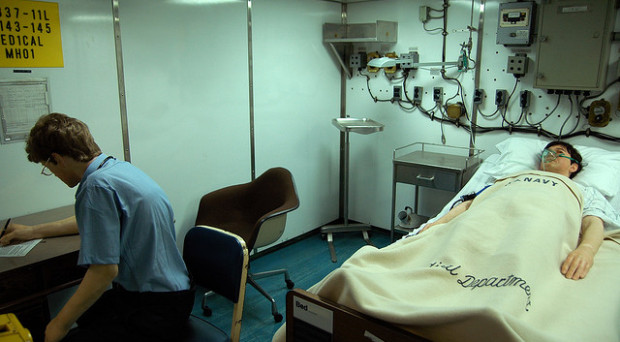
Everyone “knows” that sleep is important for maintaining health and healing. It’s certainly conventional wisdom and we firmly believe in the restorative power of sleep, “Get a good night’s rest,” we tell patients (and friends, and family) who are feeling unwell.
So if sleep is so important for recovery, why do we make it so difficult for patients to sleep in the intensive care unit (ICU)? Multiple studies have now documented very poor subjective and objective sleep in the ICU. One recent study showed that median total sleep time was only 5 hours per day, and the median sleep duration was only 3 minutes! So, why don’t we do something about it?
Firstly, promoting sleep in the ICU is difficult. It is affected by multiple factors, not only related to the patient’s underlying illness and associated medical interventions but also to environmental influences, such as light and noise.
Secondly, sleep in the ICU is difficult to assess and measure, and is often overestimated in patients on sedative medications.
Thirdly, there are no clear data so far that compel intensive care specialists to focus their efforts towards improving sleep. However, this situation is changing and emerging data show that sleep may in fact be as restorative inside the ICU as outside it. Moreover, disturbances in sleep contribute to worsened quality of life after an ICU stay.
There are potentially many ways to promote sleep in the ICU. Melatonin is an endogenous hormone secreted by the Pineal gland, which is important in regulating the sleep and wake cycle. Critically ill patients are known to have impaired melatonin regulation and external supplementation has been argued to try and improve sleep in the ICU.
Similarly, reducing light and limiting noise in the ICU has also been recommended, which might be done in a variety of ways. However, the efficacy of various interventions is not yet known.
Thus, the current study by Huang and colleagues published in Critical Care is an important step in understanding how providers might best promote sleep in ICU patients. Healthy volunteers without sleep disorders or alcohol or drug abuse underwent a baseline evaluation of their sleep in a simulated ICU environment. The authors then tested the influence of melatonin compared to eye masks and ear plugs along with a placebo.
While both interventions improved the subjective and objective assessment of sleep to some degree, Melatonin was more effective compared to control of light and noise. Melatonin was also better tolerated and less bothersome as compared with ear plugs and eye masks.
Although the study was small and performed in healthy subjects, it was a meticulous undertaking that provides a necessary proof of concept.
The findings from this study should pave the way for further investigations on the use of melatonin in critically ill patients. Hopefully, this will ultimately help allow the necessary “good night’s rest” clinicians prescribe!
Comments